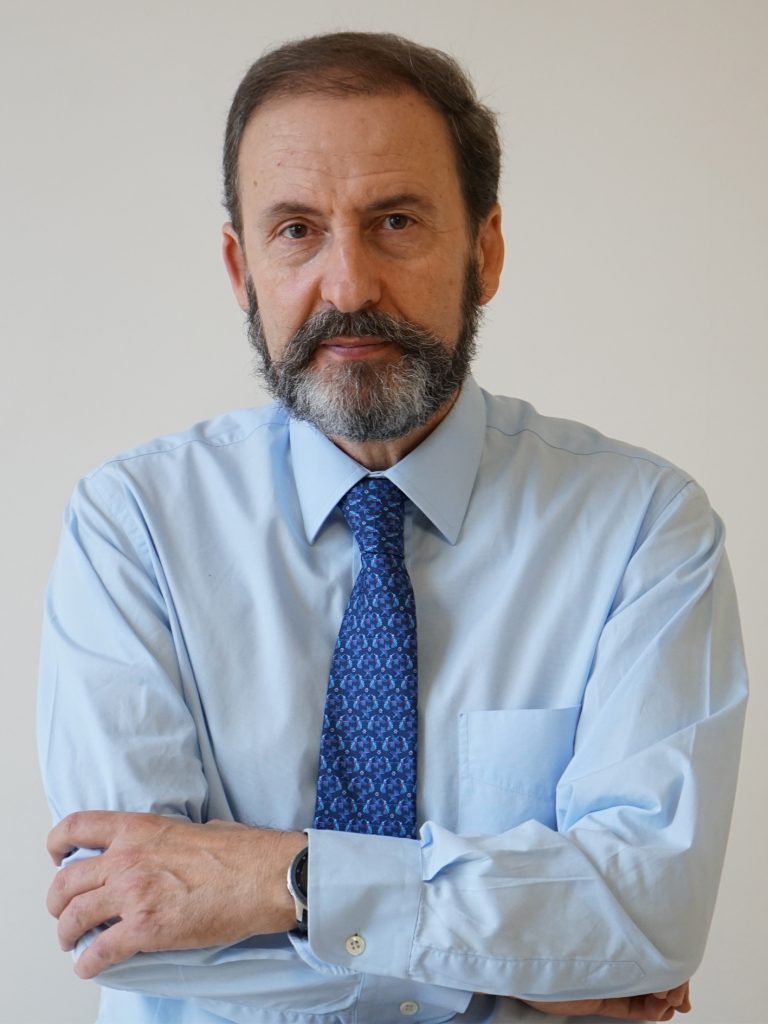
He acts as a Project Coordinator and participates in each of all 6 WPs that are part of ECRIN-M3 Project.
Prof. Dr. Alberto Orfao (MD, PhD) is a Full Professor at the Department of Medicine (University of Salamanca), subdirector of the Cancer Research Centre (CIC/FICUS), director of the Cytometry and Cell-Sorting Central Services of NUCLEUS (University of Salamanca), and Scientific Director of the Spanish National DNA Bank and the Network of Tumour Biobanks of Castilla y Leon (Spain).As PI leads a group of >25 researchers at CIC/FICUS whose research activities are mainly focused on early stages of development of haematological malignancies and the role of the immune system in cancer development and progression.
He is co-author in >665 scientific papers in international journals (last author in >50%), with an h-index of 77 and >31,000 citations. In addition, he is an inventor of 45 (granted/pending) patents, of which >90% are licensed to European and US companies (e.g. Cytognos, ImmunoSTEP, 300K Biotech, FagoTrace or Becton/Dickinson Biosciences). A major focus of his research has been MBL with multiple relevant contributions in the last 10y, related to: i) sensitive detection approaches and definition of an unprecedented high frequency of MBL in the general population, the presence and implication of immune dysregulation (already at the very early stages) in progression and premature death of MBL due to infection and second tumours, with a potential key role for host-virus infections. This has led to in-depth characterization of immune cells in healthy subjects and patients with antibody deficiencies and of the BCR in MBL vs CLL. Other selected scientific achievements with relevant clinical impact include: i) first definition of mixed phenotype acute leukaemias and its characterization, ii) first demonstration of (direct) systematic CMV involvement in a rare subtype of CD4+ LGL leukaemia with its diagnostic and therapeutic implications, iii) first description of the plasmacytoid dendritic cell origin of a rare subtype of leukaemia/lymphoma and its detailed characterization, preceding its recognition as a separate diagnostic entity by the WHO in 2008; iv) the development of a score for screening of clonal disease in patients with mast cell activation syndrome; v)identification of new variants of systemic mastocytosis including SM in the absence of cutaneous lesions associated with insect bite anaphylaxis and the recent variant of well-differentiated SM with therapeutic implications due to the description of complete responses to imatinib and myelotarg vi) first description of KIT mutation as a hallmark of both aggressive and indolent SM including the prognostic impact of involvement of residual haematopoiesis and mesenchymal cells by the K IT mutation and other mutations , vi) development of novel laboratory diagnostics for leukaemia and lymphoma currently adopted worldwide by >2,000 institutions in US, Canada, Europe, Asia, Africa; Australia and Latin-America, and that include specific approaches for sensitive detection of CNS involvement in leukaemia and lymphoma at diagnosis in e.g. CNS and blood and after therapy which are internationally adopted and the participation in international projects such as the 1000 Human Genome Project.
Alberto Orfao has received >40 awards and recognitions including the Berend Howen and the Wallace Coulter awards of the International Society for Laboratory Haematology and the International Society for Clinical Cytometry, respectively, and the 2012 Castilla and Leon Prize for Scientific and Technical Research and the 3rd Prize in Applied Biomedical Research of the Valdes-Salas Foundation.
He is currently member of the external scientific committees of several research institutions in Spain and other European countries, and he is member of multiple national and international scientific evaluation panels, consortia and research groups, including the EuroFlow Consortium (chair), European Scientific Foundation for Laboratory Hemato-Oncology (ESLHO) and the European Leukemia Net (ELN) and The 1000 Genome Project, European Competence Network on Mastocytosis. He is/has been also member of the editorial board of several scientific journals, such as Leukemia, Haematologica, Blood Research, Human Genetics and Cytometry.